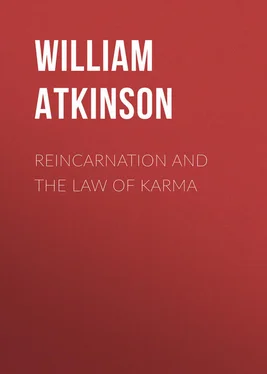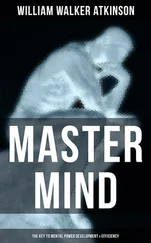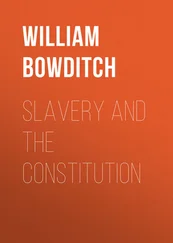William Atkinson - Reincarnation and the Law of Karma
Здесь есть возможность читать онлайн «William Atkinson - Reincarnation and the Law of Karma» — ознакомительный отрывок электронной книги совершенно бесплатно, а после прочтения отрывка купить полную версию. В некоторых случаях можно слушать аудио, скачать через торрент в формате fb2 и присутствует краткое содержание. ISBN: , Жанр: foreign_antique, foreign_prose, на английском языке. Описание произведения, (предисловие) а так же отзывы посетителей доступны на портале библиотеки ЛибКат.
- Название:Reincarnation and the Law of Karma
- Автор:
- Жанр:
- Год:неизвестен
- ISBN:http://www.gutenberg.org/ebooks/26364
- Рейтинг книги:4 / 5. Голосов: 1
-
Избранное:Добавить в избранное
- Отзывы:
-
Ваша оценка:
- 80
- 1
- 2
- 3
- 4
- 5
Reincarnation and the Law of Karma: краткое содержание, описание и аннотация
Предлагаем к чтению аннотацию, описание, краткое содержание или предисловие (зависит от того, что написал сам автор книги «Reincarnation and the Law of Karma»). Если вы не нашли необходимую информацию о книге — напишите в комментариях, мы постараемся отыскать её.
Reincarnation and the Law of Karma — читать онлайн ознакомительный отрывок
Ниже представлен текст книги, разбитый по страницам. Система сохранения места последней прочитанной страницы, позволяет с удобством читать онлайн бесплатно книгу «Reincarnation and the Law of Karma», без необходимости каждый раз заново искать на чём Вы остановились. Поставьте закладку, и сможете в любой момент перейти на страницу, на которой закончили чтение.
Интервал:
Закладка:
Scholars have noted that in important passages in the Jewish Bible, three distinct terms are used in referring to the immaterial part, or "soul," of man. These terms are "Nichema," "Rouach," and "Nephesh," respectively, and have been translated as "soul," "spirit" or "breath," in several senses of these terms. Many good authorities have held that these three terms did not apply to one conception, but that on the contrary they referred to three distinct elements of the soul, akin to the conceptions of the Egyptians and other early peoples, who held to the trinity of the soul, as we have shown a little further back. Some Hebrew scholars hold that "Nichema" is the Ego, or Intelligent Spirit; "Rouach," the lower vehicle of the Ego; and "Nephesh," the Vital Force, Vitality, or Life.
Students of the Kaballah, or Secret Writings of the Jews, find therein many references to the complex nature of the soul, and its future states, as well as undoubted teachings regarding Reincarnation, or Future Existence in the Body. The Kaballah was the book of the Jewish Mysteries, and was largely symbolical, so that to those unacquainted with the symbols employed, it read as if lacking sense or meaning. But those having the key, were able to read therefrom many bits of hidden doctrine. The Kaballah is said to be veiled in seven coverings – that is, its symbology is sevenfold, so that none but those having the inner keys may know the full truth contained therein, although even the first key will unlock many doors. The Zohar, another Secret Book of the Jews, although of much later origin than the Kaballah, also contains much of the Inner Teachings concerning the destiny of the soul. This book plainly recognizes and states the three-fold nature of the soul, above mentioned, and treats the Nichema, Rouach and Nephesh as distinct elements thereof. It also teaches that when the soul leaves the body it goes through a long and tedious purifying process, whereby the effect of its vices is worn off by means of a series of transmigrations and reincarnations, wherein it develops several perfections, etc. This idea of attaining perfection through repeated rebirths, instead of the rebirths being in the nature of punishment as taught by Plato, is also taught in the Kaballah, showing the agreement of the Jewish mind on this detail of the doctrine. The essence of the Kaballic teaching on this subject is that the souls undergo repeated rebirth, after long intervals of rest and purification, in entire forgetfulness of their previous existences, and for the purpose of advancement, unfoldment, purification, development, and attainment. The Zohar follows up this teaching strictly, although with amplifications. The following quotation from the Zohar is interesting, inasmuch as it shows the teaching on the subject in a few words. It reads as follows: "All souls are subject to the trials of transmigration; and men do not know which are the ways of the Most High in their regard. They do not know how many transformations and mysterious trials they must undergo; how many souls and spirits come to this world without returning to the palace of the divine king. The souls must re-enter the absolute substance whence they have emerged. But to accomplish this end they must develop all the perfections; the germ of which is planted in them; and if they have not fulfilled this condition during one life, they must commence another, a third, and so on, until they have acquired the condition which fits them for reunion with God."
The mystic sect which sprung up among the Jewish people during the century preceding the birth of Christ, and which was in the height of its influence at the time of the Birth – the sect, cult, or order of The Essenes – was an important influence in the direction of spreading the truths of Reincarnation among the Jewish people. This order combined the earlier Egyptian Mysteries with the Mystic Doctrine of Pythagoras and the philosophy of Plato. It was closely connected with the Jewish Therapeutæ of Egypt, and was the leading mystic order of the time. Josephus, the eminent Jewish historian, writing of the Essenes, says: "The opinion obtains among them that bodies indeed are corrupted, and the matter of them not permanent, but that souls continue exempt from death forever; and that emanating from the most subtle ether they are unfolded in bodies as prisons to which they are drawn by some natural spell. But when loosed from the bonds of flesh, as if released from a long captivity, they rejoice and are borne upward." In the New International Encyclopedia (vol. vii, page 217) will be found an instructive article on "Essenes," in which it is stated that among the Essenes there was a certain "view entertained regarding the origin, present state, and future destiny of the soul, which was held to be pre-existent, being entrapped in the body as a prison," etc. And in the same article the following statement occurs: "It is an interesting question as to how much Christianity owes to Essenism. It would seem that there was room for definite contact between John the Baptist and this Brotherhood. His time of preparation was spent in the wilderness near the Dead Sea; his preaching of righteousness toward God, and justice toward one's fellow men, was in agreement with Essenism; while his insistence upon Baptism was in accordance with the Essenic emphasis on lustrations." In this very conservative statement is shown the intimate connection between the Essenes and Early Christianity, through John the Baptist. Some hold that Jesus had a still closer relationship to the Essenes and allied mystic orders, but we shall not insist upon this point, as it lies outside of the ordinary channels of historical information. There is no doubt, however, that the Essenes, who had such a strong influence on the early Christian Church, were closely allied to other mystic organizations with whom they agreed in fundamental doctrines, notably that of Reincarnation. And so we have brought the story down to the early Christian Church, at which point we will continue it. We have left the phase of the subject which pertains to India for separate consideration, for in India the doctrine has had its principal home in all ages, and the subject in that phase requires special treatment.
That there was an Inner Doctrine in the early Christian Church seems to be well established, and that a part of that doctrine consisted in a teaching of Pre-existence of the Soul and some form of Rebirth or Reincarnation seems quite reasonable to those who have made a study of the subject. There is a constant reference to the "Mysteries" and "Inner Teachings" throughout the Epistles, particularly those of Paul, and the writings of the Early Christian Fathers are filled with references to the Secret Doctrines. In the earlier centuries of the Christian Era frequent references are found to have been made to "The Mysteries of Jesus," and that there was an Inner Circle of advanced Christians devoted to mysticism and little known doctrines there can be no doubt. Celsus attacked the early church, alleging that it was a secret organization which taught the Truth to the select few, while it passed on to the multitude only the crumbs of half-truth, and popular teachings veiling the Truth. Origen, a pupil of St. Clement, answered Celsus, stating that while it was true that there were Inner Teachings in the Christian Church, that were not revealed to the populace, still the Church in following that practice was but adhering to the established custom of all philosophies and religions, which gave the esoteric truths only to those who were ready to receive them, at the same time giving to the general mass of followers the exoteric or outer teachings, which were all they could understand or assimilate. Among other things, in this reply, Origen says: "That there should be certain doctrines, not made known to the multitude, which are divulged after the exoteric ones have been taught, is not a peculiarity of Christianity alone, but also of philosophic systems in which certain truths are exoteric and others esoteric. Some of the followers of Pythagoras were content with his 'ipse dixit,' while others were taught in secret those doctrines which were not deemed fit to be communicated to profane and insufficiently prepared ears. Moreover, all the mysteries that are celebrated everywhere through Greece and barbarous countries, although held in secret, have no discredit thrown upon them, so that it is in vain he endeavors to calumniate the secret doctrines of Christianity, seeing that he does not correctly understand its nature." In this quotation it will be noticed that not only does Origen positively admit the existence of the Inner Teachings, but that he also mentions Pythagoras and his school, and also the other Mysteries of Greece, showing his acquaintance with them, and his comparison of them with the Christian Mysteries, which latter he would not have been likely to have done were their teachings repugnant to, and at utter variance with, those of his own church. In the same writing Origen says: "But on these subjects much, and that of a mystical kind, might be said, in keeping with which is the following: 'It is good to keep close to the secret of a king,' in order that the entrance of souls into bodies may not be thrown before the common understanding." Scores of like quotations might be cited.
Читать дальшеИнтервал:
Закладка:
Похожие книги на «Reincarnation and the Law of Karma»
Представляем Вашему вниманию похожие книги на «Reincarnation and the Law of Karma» списком для выбора. Мы отобрали схожую по названию и смыслу литературу в надежде предоставить читателям больше вариантов отыскать новые, интересные, ещё непрочитанные произведения.
Обсуждение, отзывы о книге «Reincarnation and the Law of Karma» и просто собственные мнения читателей. Оставьте ваши комментарии, напишите, что Вы думаете о произведении, его смысле или главных героях. Укажите что конкретно понравилось, а что нет, и почему Вы так считаете.












